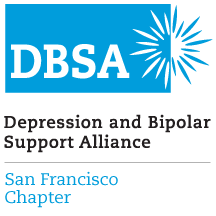>
Learn More
Mental health includes emotional, psychological, and social well-being. It affects how we think, feel, and act. Understand what it is and how to help!

What is Mental Health?
According to MentalHealth.gov, Mental Health includes our emotional, psychological and social well-being. It affects how we things, feel and act. It also helps determine how we handle stress, relate to others and make choices. Mental health is important at every stages of life, from childhood and adolescence through adulthood.
Over the course of your life, if you experience mental health problems, your thinking, mood and behavior could be affected. Many factors contribute to mental health problems, including:
-
Biological factors such as genes or brain chemistry
-
Life experiences, such as trauma or abuse
-
Family history of mental health problems
People with mental health problems can get better and many recover completely!
Early Warning Signs
Not sure if you or someone you know is living with mental health problems? Experiencing one or more of the following feelings or behaviors can be an early warning sign of a problem:
Eating or sleeping too much or too little; Pulling away from people and usual activities; Having low or no energy; Feeling numb or like nothing matters; Having unexplained aches and pains; Feeling helpless or hopeless; Smoking, drinking, or using drugs more than usual and others.

Positive mental health allows people to:
-
Realize their full potential
-
Cope with the stresses of life
-
Work productively
-
Make meaningful contributions to their communities
Ways to maintain positive mental health include:
-
Getting professional help if you need it
-
Getting physically active
-
Getting enough sleep
-
Helping and connecting with others
“I found that with depression, one of the most important things you can realize is that you’re not alone. You’re not the first to go through it, you’re not gonna be the last to go through it. — Dwayne “The Rock” Johnson”
Understanding Depression
Not sure if you or someone you know is living with mental health problems? Most people feel sad or depressed at times. It’s a normal reaction to loss or life's challenges. But when intense sadness -- including feeling helpless, hopeless, and worthless -- lasts for many days to weeks and keeps you from living your life, it may be something more than sadness. You could have clinical depression, a treatable medical condition. We've been there, we can help, join a support group.


What Does It Mean to Have Bipolar?
Around 1% of people develop bipolar disorder (formerly known as manic depression). People with bipolar experience both episodes of severe depression and episodes of either hypomania (bipolar II) or mania (bipolar I) - overwhelming joy, excitement, huge energy, a reduced need for sleep, and reduced inhibitions. Talking to peers can be a great help to figure out how you can best manage your mental health. We've been there, we can help, join group.
